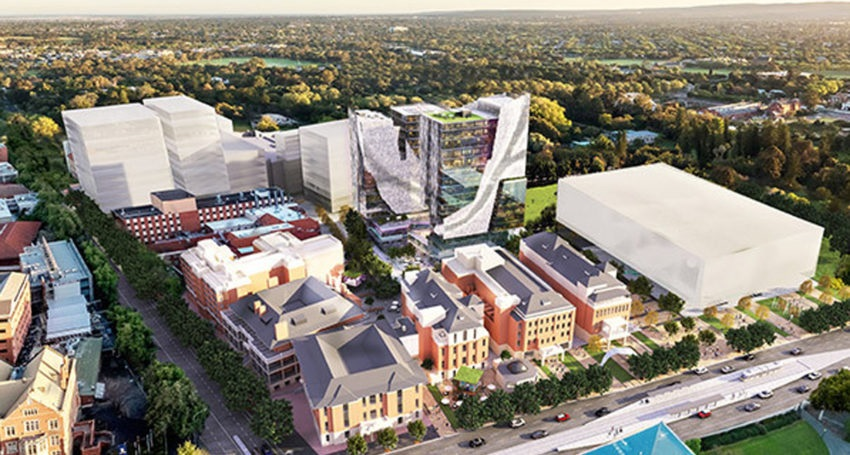Feb 19 2020
Autonomous drones flew in to mark the official opening of the world-leading Australian Institute for Machine Learning’s new research and learning space in Adelaide today.
 Adelaide's Lot Fourteen aims to be become the largest innovation precinct in the Southern Hemisphere.
Adelaide's Lot Fourteen aims to be become the largest innovation precinct in the Southern Hemisphere.
The University of Adelaide’s Australian Institute for Machine Learning (AIML) is a key research institution in machine learning globally, ranked number one in the world for three key areas of artificial intelligence and machine learning.
Housed at Adelaide innovation neighbourhood Lot Fourteen, its researchers are applying machine learning – a field of computer science that gives computers the ability to learn without being explicitly programmed – to agriculture, medical imaging, manufacturing, mining operation and movie making.
“Our Institute is making an important national and international contribution to pushing the boundaries of what machine learning can do, and how that can be applied to almost every aspect of our lives,” said Professor Anton van den Hengel, Director of AIML at the University of Adelaide.
“Artificial intelligence (AI) and machine learning are already impacting on industries as diverse as agriculture, medicine, transport, space, defence, cybersecurity, and advanced manufacturing, and we aim to ensure South Australia remains at the forefront.
“Over the last two years, we have engaged with more than 100 organisations to help them enter into the new AI-enabled global economy. We are working with 10 South Australian SMEs to develop world class AI products to sell to the world.”
University of Adelaide Vice-Chancellor Professor Peter Rathjen said the AIML was a partnership between the University of Adelaide, State Government of SA, and industry partners such as Lockheed Martin.
“The Institute is yet another example of the power of universities, governments and industry to unlock the potential of their collective know-how and vision,” he said.
Professor Rathjen also said innovation precincts like Lot Fourteen are important to bring together research and education with government and industry.
“At Lot Fourteen, we are seeing the evolution of a complex, high-tech ecosystem, where the co-location of all these partners is already driving new knowledge and new ways of using that knowledge. This will result in the creation of new technologies and industries for our state across a range of sectors.”
Lot Fourteen aims to become the largest innovation precinct in the Southern Hemisphere and also houses a number of other local and international tech, space, defence and cyber companies and the Office of South Australia’s Chief Entrepreneur, Jim Whalley.
South Australian Premier Steven Marshall said cutting edge research projects would enable the state to harness rich data and insights to inform new ideas in implementing a vision for the state.
“It will bolster South Australia’s entrepreneurial activity across a range of industries from defence to tourism, providing us with new tools and capabilities to ensure that this state remains at the forefront of global innovation and enterprise,” he said.
Since its inception in 2017, AIML has forged a founding partnership with Lockheed Martin, with Lockheed staff based within AIML, signed agreements with MIT to develop a Living Labs program with the University of South Australia and State Government.
There is also an agreement with Carnegie Mellon University to give postgraduates from the University of Adelaide a chance to experience international research opportunities.